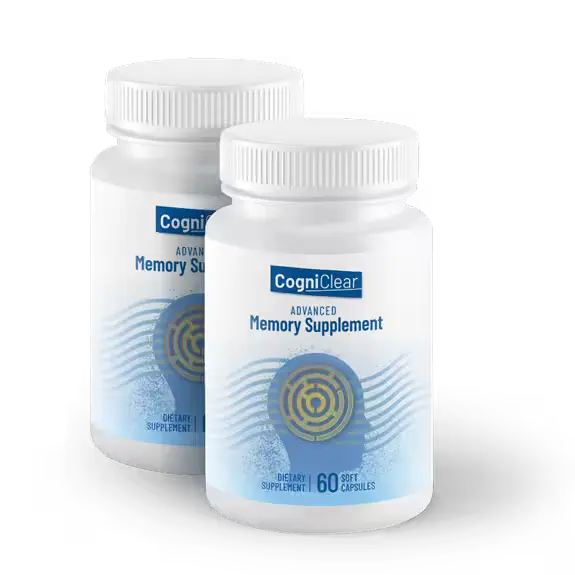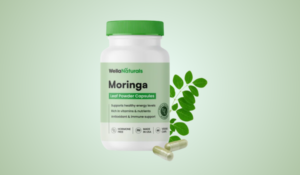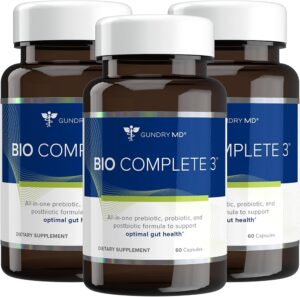Look, another brain supplement promising to turn you into Bradley Cooper from Limitless. You’ve seen the ads. Maybe click on one at 2 AM when you can’t focus on work. Now you’re wondering if Cogniclear is actually different or just another overpriced bottle of placebo pills that’ll sit in your cabinet mocking you.
Let’s dig into this thing because, honestly, the supplement industry has burned us enough times that a little scepticism is basically self-care at this point.
What They’re Selling You
Cogniclear comes out swinging with some pretty bold promises. According to their marketing materials, this little capsule will:
- “Enhance memory and recall within weeks”
- “Boost mental clarity and focus naturally”
- “Support long-term brain health”
- “Eliminate brain fog without caffeine jitters”
- “Improve cognitive performance at any age”
They paint this picture where you’ll suddenly remember where you put your keys, crush that work presentation, and maybe even solve a Rubik’s cube blindfolded (okay, they don’t say that last part, but the implications are there). The website shows stock photos of people looking intensely focused and successful. Which is great and all, but let’s see what’s actually happening under the hood.
What’s Actually Inside
Here’s where things get interesting or concerning, depending on how you look at it. Cogniclear uses something called a “proprietary blend,” which is basically supplement-speak for “we’re not telling you the exact amounts of each ingredient.” Red flag? Maybe. Let me break down what they DO tell us:
| Ingredient | What It Claims To Do | What Research Actually Says |
|---|---|---|
| Bacopa Monnieri | Improves memory formation | Some studies show benefits after 12+ weeks of use at 300-450mg daily |
| Ginkgo Biloba | Enhances blood flow to the brain | Mixed results; may help older adults, but evidence is inconsistent |
| Phosphatidylserine | Supports cognitive function | Decent research at 100-300mg doses, but effects are modest |
| L-Theanine | Promotes calm focus | Works well (especially with caffeine), but you can get this from green tea |
| Rhodiola Rosea | Reduces mental fatigue | Some promising research, though more studies are needed |
| Huperzine A | Boosts acetylcholine levels | Potentially effective but needs careful dosing (too much = side effects) |
So they’ve thrown in ingredients that do have some legitimate research behind them (which, to be fair, puts them ahead of complete garbage supplements). But here’s where it gets sketchy: without knowing the exact doses, you can’t tell if you’re getting therapeutic amounts or just fairy dust sprinkles that let them technically list these ingredients.
That proprietary blend means they could be using 5mg of something that needs 300mg to actually work, and you’d never know. They hide the amounts in a proprietary blend, which means you can’t see how much of each ingredient you’re actually getting. See what I mean?
The Dosage Deception
This bothers me more than it probably should. But real talk, dosage is EVERYTHING with supplements. You can have the right ingredients and still end up with an expensive placebo if the amounts are wrong.
Cogniclear recommends taking two capsules daily. That’s it. That’s all the guidance you get. No mention of taking it with food, timing it with your circadian rhythm, cycling on and off, nothing. Which tells me they either don’t actually understand how these compounds work, or they’re keeping it vague on purpose.
Compare that to actual clinical studies on these ingredients, which specify exact milligram amounts, timing protocols, and duration needed to see results. The difference is pretty telling.
What Real Users Are Saying
I dug through customer reviews across multiple platforms because the company’s own website only shows glowing five-star reviews (shocking, I know). Here’s what the broader picture looks like:
The Positive Camp:
- Some users report improved focus after 3-4 weeks
- A few mention better memory recall for daily tasks
- Generally well-tolerated with minimal side effects
The Sceptical Camp:
- Many saw zero noticeable effects even after finishing the bottle
- Several complained about the price vs. results ratio
- Common complaint: “Felt like I was taking nothing”
The Honest Middle Ground:
- Effects seem subtle at best, not the dramatic transformation advertised
- Results varied wildly between individuals (which is actually normal for nootropics)
- Most who saw benefits also made other lifestyle changes (sleep, diet, exercise)
And here’s something nobody talks about: the placebo effect is STRONG with brain supplements because cognitive changes are subjective and you’re actively looking for improvements.
The Money Situation
Pricing seems steep. We’re talking $79 for a single bottle here, which makes your wallet cry a little. That’s 30 days of hoping this works while watching your bank account shrink.
They do offer bulk discounts:
- 1 Bottle: $79
- 3 Bottles: $177 ($59 each)
- 6 Bottles: $294 ($49 each)
Now, that six-bottle option gets you closer to reasonable pricing, but you’re committing to a six-month supply of something you’ve never tried. That’s $294 upfront on a gamble. They do offer a 60-day money-back guarantee, which sounds good until you read the fine print that says you need to return even empty bottles and might wait weeks for your refund.
For context, you could buy the individual ingredients separately for probably half the cost—though admittedly that’s more work on your end.
Is Cognicear Worth It or Just Smoke?
Here’s my honest take after looking at everything. Cogniclear isn’t a complete scam—it contains legitimate ingredients with some scientific backing. But (and this is a big but) it’s also not the miracle brain booster their marketing wants you to believe in.
The proprietary blend issue really bothers me because it prevents you from making an informed decision. You might be getting effective doses. Or you might be getting an expensive placebo. You literally cannot know.
This might work or might not depending on your individual biochemistry, current cognitive baseline, lifestyle factors, and whether you’re getting therapeutic doses of these ingredients (which again, mystery). Some people will probably see modest improvements. Many won’t notice anything. That’s just the reality with nootropics.




Be First to Comment